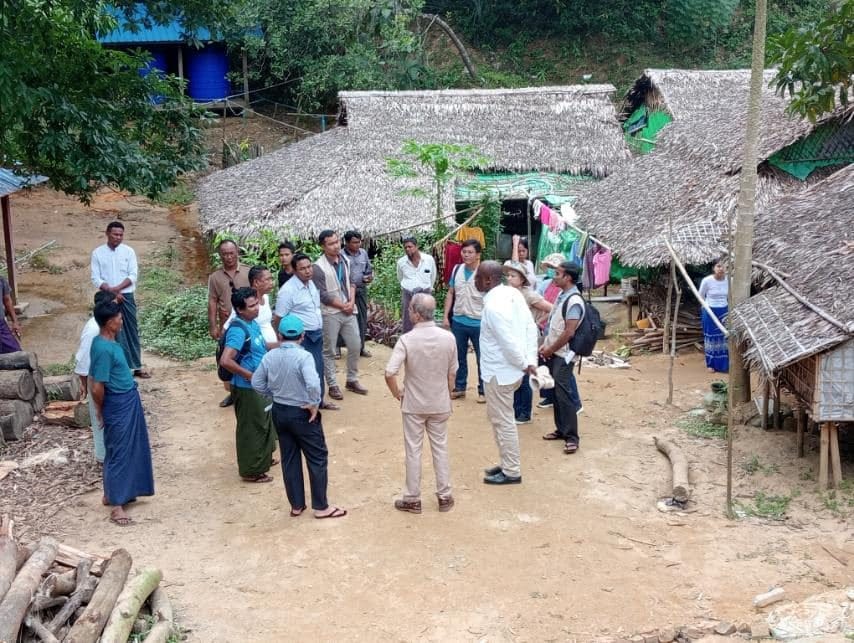UNHCR Delegation’s Engagement with Myanmar Military Raises Concerns
The UNHCR’s Logistical Support to the Junta

In a controversial move, a high-level delegation from the UN High Commissioner for Refugees (UNHCR) accompanied by Myanmar military authorities travelled from Yangon to Sittwe, and then onto Maungdaw today (5 November 2023). The UNHCR-funded transportation, including the use of a vehicle provided to the military, has sparked debate over the repeated engagements between the agency and the military junta governing Myanmar, raising questions about adherence to humanitarian principles.
Mr. Raouf Mazou, Assistant Secretary-General and Assistant High Commissioner for Operations at the UNHCR Geneva headquarters, led the delegation, which also included Mrs. Noriko Takagi, the UNHCR representative of Myanmar, as well as directors from various junta departments. Their journey commenced using speed boats owned by the UNHCR office and later continued via motor vehicles.
During their visit to Buthidaung, the delegation met with internally displaced persons (IDPs) taking shelter within the precincts of a local monastery, engaging with representatives from Rakhine households to discuss their needs and challenges.
UNHCR’s Logistical Support to the Junta & Neutrality Concerns
This trip adds to a pattern of controversial interactions, with Mekong News reporting the use of UN vehicles bearing the organisation’s emblem by the Myanmar military in Shan State. Similarly, the Myanmar Accountability Project (MAP) reported that the UN permitted junta personnel and guns on its boats—both actions have sparked concerns over the UN's commitment to maintaining expected standards of neutrality.
The MAP, a London-based NGO, has been vocal in its criticism of the UNHCR’s dealings with the junta, particularly highlighting the agency's role in transporting junta officials on unmarked UN boats to Bangladeshi refugee camps. The removal of UN logos for such purposes has been deemed a “serious breach of UN neutrality.” This move, which MAP argues could endanger humanitarian workers, indicates a worrying conflation of UN humanitarian efforts with political interests since the military coup of 2021.
Furthermore, the UNHCR’s logistical support to the Myanmar delegation, as it engaged in a technical verification process for the repatriation of Rohingya refugees, has attracted attention. Despite the UNHCR’s stance that conditions in Myanmar’s Rakhine state are "currently not conducive to the sustainable return of Rohingya refugees," their facilitation of the junta’s activities raises questions about the coherence of the agency's policies and its commitment to the refugees' well-being.
The UN’s recent interactions with the military, detailed in an email from the UN’s resident coordinator in Myanmar, have also flagged a “reputational risk” for the UN. These developments feed into fears that such collaboration could jeopardise staff security and the essential neutrality required to deliver aid to vulnerable populations like the Rohingya.
Today’s developments are expected to amplify calls for greater transparency and responsible engagement regarding the UN's involvement in Myanmar. This increased scrutiny comes at a time when any interaction with the military junta can be seen as granting legitimacy to their authority—a stance at odds with widespread international censure. The need for the UN to clearly articulate its position and actions in Myanmar has never been more critical, as these will have significant implications for the principles of neutrality and impartial humanitarian assistance.

